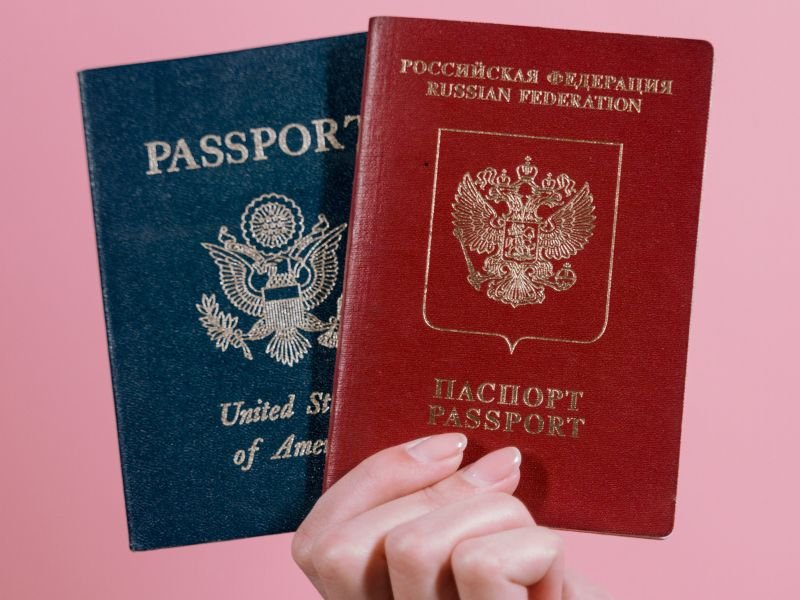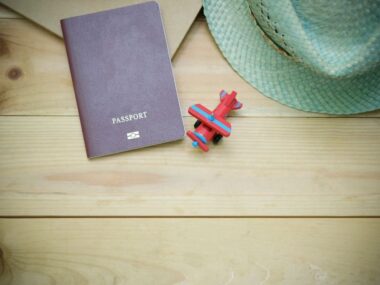Immigrating to a new country can be an exciting opportunity for personal and professional growth. However, navigating the visa process can be complex, especially when it involves sponsorship. A sponsorship visa allows individuals to live, work, or study in a foreign country with the financial or legal backing of an employer, family member, or institution. Whether you are seeking employment, reuniting with loved ones, pursuing higher education, or investing in a business, understanding sponsorship visa requirements is crucial to ensuring a smooth and successful immigration journey.
Each country has its own set of rules and eligibility criteria for sponsorship visas, making it essential to be well-informed about the process. From securing a sponsor to meeting financial and legal obligations, applicants must be prepared for various challenges along the way. This article provides a comprehensive guide to sponsorship visas, covering their types, key requirements, application procedures, and potential obstacles—helping you navigate your immigration journey with confidence.
What is a Sponsorship Visa?
A sponsorship visa is a type of visa that allows a foreign national to enter, live, work, or study in a country with the support of a sponsor. The sponsor, which can be an employer, family member, or institution, takes financial and legal responsibility for the applicant, ensuring they comply with visa conditions and do not become a burden on the host country.
How Sponsorship Works
Sponsorship means that an individual or organization is officially endorsing a visa applicant’s stay in a country. This endorsement usually involves:
- Providing financial support (if required)
- Confirming the applicant’s purpose of stay (employment, family reunification, education, or investment)
- Ensuring compliance with immigration laws
Depending on the type of visa, sponsorship can take different forms. For example, in work visas, an employer sponsors a foreign worker by offering them a job and ensuring they meet labor market requirements. In family sponsorship visas, a citizen or permanent resident sponsors a relative to join them in the country.
Who Can Be a Sponsor?
A sponsor can be:
- An Employer – A company that wants to hire a skilled foreign worker.
- A Family Member – A relative (spouse, parent, or child) who is a citizen or permanent resident of the country.
- An Educational Institution – A university or school sponsoring a student.
- A Government or Business Entity – A government-backed program or investor visa scheme that supports entrepreneurs and skilled professionals.
Types of Sponsorship Visas
Sponsorship visas vary depending on the purpose of travel and the relationship between the applicant and the sponsor. Below are the most common types of sponsorship visas:
Work Sponsorship Visa
A work sponsorship visa allows foreign nationals to work in another country with the sponsorship of an employer. The employer must prove that the applicant has the necessary skills and that no suitable local worker is available for the job.
Examples of Work Sponsorship Visas
- H-1B Visa (USA) – For skilled professionals in specialized fields such as IT, engineering, and healthcare.
- Skilled Worker Visa (UK) – For individuals with job offers in eligible occupations.
- 482 Temporary Skill Shortage Visa (Australia) – Allows employers to bring in skilled workers for labor shortages.
- Work Visa (Canada) – Available under various programs, including the Temporary Foreign Worker Program (TFWP).
Common Requirements
- A job offer from a registered employer.
- Employer sponsorship approval from the immigration authorities.
- Proof that no local workers are available for the position.
- Relevant qualifications or work experience.
Family Sponsorship Visa
A family sponsorship visa allows a citizen or permanent resident to bring family members to live with them in their country. These visas promote family reunification and typically apply to spouses, children, parents, or other close relatives.
Examples of Family Sponsorship Visas
- Family Class Sponsorship (Canada) – Allows Canadian citizens and permanent residents to sponsor spouses, children, and parents.
- Spouse Visa (UK) – Enables foreign spouses or partners of UK citizens to join them.
- Marriage Visa (USA – CR1/IR1 Visa) – For spouses of U.S. citizens to immigrate.
- Family Reunion Visa (Germany) – Allows spouses and children of foreign workers to join them.
Common Requirements
- Proof of a genuine family relationship (marriage certificate, birth certificate, etc.).
- Financial proof that the sponsor can support the applicant.
- Commitment that the applicant will not rely on public funds.
- In some cases, language proficiency tests may be required.
Student Sponsorship Visa
A student sponsorship visa allows international students to study in a foreign country with the backing of an educational institution or a legal guardian. The institution must confirm that the student has been accepted into a recognized program and has sufficient funds to support themselves.
Examples of Student Sponsorship Visas
- F-1 Visa (USA) – For students enrolled in accredited U.S. institutions.
- Tier 4 (Student) Visa (UK) – For students studying full-time in the UK.
- Student Visa (Australia – Subclass 500) – For international students studying in Australia.
- Student Permit (Canada) – For those admitted to a Canadian educational institution.
Common Requirements
- An acceptance letter from a registered educational institution.
- Proof of financial ability to cover tuition and living expenses.
- Health insurance (in some countries).
- In some cases, an English proficiency test (IELTS, TOEFL).
Business or Investor Sponsorship Visa
These visas are designed for entrepreneurs, investors, and skilled business professionals who wish to start or expand a business in another country. Governments offer these visas to attract foreign investments and create jobs.
Examples of Business/Investor Sponsorship Visas
- EB-5 Immigrant Investor Visa (USA) – For investors who invest at least $900,000 in U.S. businesses.
- Innovator Visa (UK) – For entrepreneurs with innovative business ideas.
- Business Talent Visa (Australia – Subclass 132) – For high-caliber business owners.
- Start-Up Visa (Canada) – For entrepreneurs planning to launch innovative businesses.
Common Requirements
- A certain level of investment in the country’s economy.
- A viable business plan.
- Job creation for local residents.
- Proof of business experience and management skills.
Religious or Charity Sponsorship Visa
Some countries offer visas for individuals sponsored by religious organizations or charities to carry out missionary or humanitarian work.
Examples of Religious/Charity Sponsorship Visas
- R-1 Religious Worker Visa (USA) – For religious workers sponsored by a U.S. organization.
- Minister of Religion Visa (UK – Tier 2) – For religious leaders sponsored by faith organizations.
- Religious Worker Visa (Canada) – For those employed by religious institutions.
Common Requirements
- A formal invitation or contract from a recognized religious organization.
- Proof of financial support or sponsorship.
- Background checks and compliance with immigration rules.
Government-Sponsored Visa Programs
Some governments run special visa programs that allow skilled workers, refugees, or professionals to migrate with official government sponsorship.
Examples of Government-Sponsored Visas
- Diversity Visa Lottery (USA – Green Card Lottery) – Allows individuals from underrepresented countries to migrate.
- Global Talent Visa (UK) – For highly skilled individuals in technology, science, and arts.
- Provincial Nominee Program (PNP – Canada) – Canadian provinces sponsor skilled workers based on labor market needs.
Common Requirements
- Meeting skill or profession requirements.
- Receiving nomination from the government or province.
- Proving ability to contribute to the country’s economy.
General Sponsorship Visa Requirements
While specific requirements for sponsorship visas vary depending on the country and visa type, there are several common criteria that applicants and their sponsors must meet. These requirements ensure that the applicant has legitimate reasons for immigration and that the sponsor can provide financial and legal support. Below are the general sponsorship visa requirements:
A Valid Sponsor
A key requirement for a sponsorship visa is having a recognized sponsor who meets the government’s eligibility criteria. The sponsor can be:
- An employer offering a job to a foreign worker.
- A family member (such as a spouse, parent, or child) supporting a relative’s immigration.
- An educational institution sponsoring a student for studies.
- A business or investor supporting entrepreneurs and skilled professionals.
- A government or religious organization for special visa programs.
The sponsor is responsible for ensuring that the applicant complies with immigration laws and does not become a financial burden on the country.
Proof of Financial Stability
Sponsors must demonstrate that they have the financial means to support the applicant. This ensures that the visa holder will not rely on public funds.
Financial proof may include:
- Bank statements or tax records showing sufficient income.
- Employment contracts and salary slips (for employer-sponsored visas).
- Financial affidavits for family sponsorships.
- Business assets and investment proof (for investor visas).
Some countries also require the applicant to show personal funds, especially for student and business visas.
Employment or Relationship Verification
For work visas, employers must prove that they genuinely need to hire a foreign worker. For family visas, sponsors must verify their relationship with the applicant.
Required documents may include:
- For work visas: Job offer letter, employment contract, proof of labor shortage (if required).
- For family visas: Birth certificates, marriage certificates, proof of cohabitation (for spouse visas).
- For student visas: Acceptance letter from a recognized institution.
- For business visas: Business registration documents, investment agreements.
False or misleading information can lead to visa denial or legal consequences.
Background Checks and Security Clearance
Most countries require background checks to ensure that applicants and sponsors have no criminal record or security risks.
Common background check requirements:
- Police clearance certificates from the applicant’s home country.
- Biometrics (fingerprints, photographs) for identity verification.
- Immigration history checks to identify past visa violations.
Some countries, such as the United States and Canada, conduct strict background checks for work and family sponsorship visas to prevent fraud and illegal activities.
Medical Examination and Health Insurance
Many countries require visa applicants to undergo a medical examination to ensure they do not pose public health risks. Some countries also require proof of health insurance.
Medical requirements may include:
- General health check-up by an approved doctor.
- Tuberculosis (TB) and other disease screening.
- Proof of vaccination (COVID-19, yellow fever, etc.).
Certain work and student visas require comprehensive health insurance coverage to cover medical expenses during the applicant’s stay.
Language Proficiency Requirements
Some countries require visa applicants to demonstrate proficiency in the local language, especially for work, student, and permanent residency applications.
Common language tests include:
- IELTS (International English Language Testing System) – Used by the UK, Canada, and Australia.
- TOEFL (Test of English as a Foreign Language) – Common for U.S. and Canadian universities.
- PTE (Pearson Test of English) – Used in Australia and other English-speaking countries.
- German Language Proficiency Test (for German work and study visas).
Language requirements vary depending on the visa type. For example, a UK Spouse Visa requires an A1 level in English, while skilled worker visas may require a higher score.
Application Forms and Visa Fees
Visa applicants must complete the official visa application form and pay the necessary visa processing fees.
Typical visa fees:
- Work visa fees: $200–$2,000 (varies by country and job category).
- Family sponsorship visa fees: $500–$1,500.
- Student visa fees: $100–$500.
- Investor visa fees: Varies depending on the required investment amount.
Applicants should ensure that they pay the correct fee and submit complete and accurate documentation to avoid delays.
Sponsorship Declaration and Agreement
Many countries require sponsors to sign a formal agreement accepting responsibility for the applicant. This document confirms that the sponsor will support the applicant financially and legally.
For example:
- In Canada, family sponsors must sign an undertaking to financially support their relative for 3 to 20 years (depending on the visa type).
- In Australia, employers sponsoring workers must meet labor market testing requirements and commit to fair employment conditions.
Failure to uphold sponsorship responsibilities can lead to penalties, including visa cancellations or bans on future sponsorships.
Proof of Accommodation
Some visa types require applicants to show proof of suitable accommodation in the host country. This is common for family sponsorship visas, student visas, and some work visas.
Acceptable proof may include:
- Rental agreement or property ownership documents.
- A letter from the sponsor confirming accommodation arrangements.
- University housing confirmation (for student visas).
Having stable housing helps immigration authorities ensure that the applicant has a secure place to stay upon arrival.
Compliance with Immigration Laws
Applicants must prove they will follow the visa rules and leave the country when their visa expires (unless applying for permanent residency).
- Work visa holders must work only for their sponsoring employer.
- Student visa holders must attend classes and maintain academic progress.
- Family visa holders must continue to meet the sponsorship obligations.
Some countries require a return ticket or proof of intent to leave to prevent overstaying.
Conclusion
A sponsorship visa is a crucial immigration pathway that allows individuals to work, study, or reunite with family in a foreign country with the backing of a recognized sponsor. Whether an employer, family member, educational institution, or business entity provides the sponsorship, meeting the visa requirements is essential for a smooth and successful immigration process.
Understanding the different types of sponsorship visas—such as work visas, family sponsorships, student visas, business and investor visas, religious visas, and government-sponsored programs—helps applicants choose the best route for their immigration goals. Each visa category has its own set of eligibility criteria, including financial proof, employment or relationship verification, medical exams, language proficiency, and legal documentation.
While the application process can be complex and time-consuming, proper preparation can significantly improve the chances of approval. Ensuring that all required documents are complete, meeting financial obligations, and complying with immigration laws are key steps toward a successful visa application.
For those planning an immigration journey, researching specific country requirements, seeking professional guidance when necessary, and staying updated on immigration policies can make the process much easier. With the right approach, a sponsorship visa can open doors to new opportunities, personal growth, and a better future in a new country.







